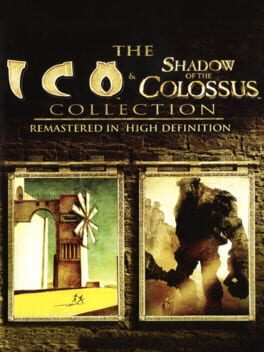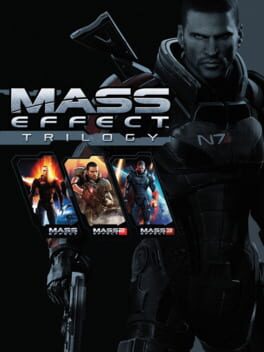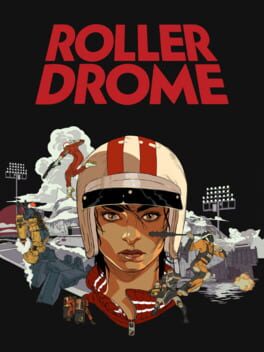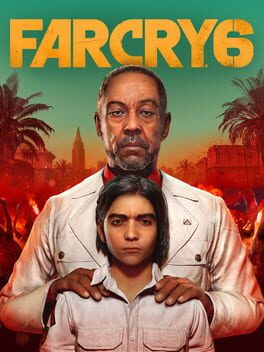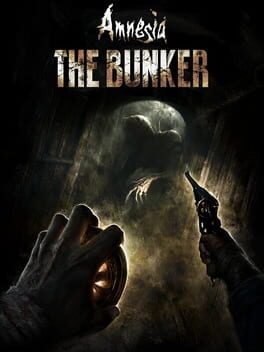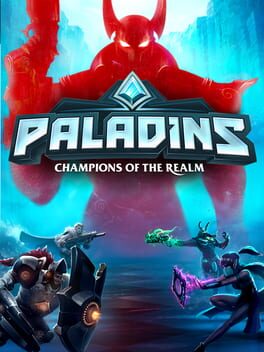Polygonade
Bio
- Playing games since c. 1994
- The L in LGBTQ
- I have an eclectic taste, but like narrative games better
- My scores reflect how much I enjoyed a piece, not necessarily their ~objective~ quality
- Playing games since c. 1994
- The L in LGBTQ
- I have an eclectic taste, but like narrative games better
- My scores reflect how much I enjoyed a piece, not necessarily their ~objective~ quality
Badges

Donor
Liked 50+ reviews / lists

Liked
Gained 10+ total review likes

Pinged
Mentioned by another user

Elite Gamer
Played 500+ games

On Schedule
Journaled games once a day for a week straight

Gamer
Played 250+ games

Best Friends
Become mutual friends with at least 3 others

Noticed
Gained 3+ followers

N00b
Played 100+ games
Favorite Games
634
Total Games Played
023
Played in 2024
005
Games Backloggd
Recently Played See More
Recently Reviewed See More
Amnesia: The Bunker starts strong. Intuitive and economic on its mechanics, it wastes no time in introducing you to a world of horrors even before the actual horrific part begins.
World War I is such a perfect setting for a horror story that it surprises me we don't have more of them, not only in video games but in other media as well. With its claustrophobic corridors, filth and dangers, the introduction of the trench warfare brought to life a new kind of martial misery, in which long stretches of squalid tedium were cut short by impredictable spasms of abominable terror. A continuum so gruesome that the philosopher Walter Benjamin would note how the soldiers who came back alive wouldn't return filled with experience, as expected from former combatants up to that moment, but rather poorer, more emptied of stories, especially stories that could ultimately make sense of what they lived. It was also around this period that mental health concepts such as PTSD started getting formalized as we understand them today.
So, needless to say I had high hopes for this game.
After a short introduction/tutorial, it leaves you mostly free to explore at your own pace. The goals are simple: find dynamite, find the detonator, explode your way out of the bunker. The player has a fair notion of how big the bunker is since the beginning, and there's only one save station. Which means the basic gameplay loop consists on planning short excursions back and forth towards smaller objectives that in the end will bring you one step closer to your major goals. I really enjoyed this approach, that along with some minor procedural aspects, gave the game quasi roguelike vibes.
The Bunker begins strong, but unfortunately its shortcomings appear as soon as the Beast is introduced. Frictional Games was probably inspired by the excellent mechanics of Alien: Isolation, but my two cents on this matter is that maybe they should have tweaked a little bit more with the Beast's AI. It starts appearing so frequently that at some point it stopped being scary and became more of an annoyance. Worst of all, this made me stop engaging with the diegetic elements of gameplay (for instance, avoid being noisy so the enemy doesn't "hear" me) and start finding it easier to just engage with the metagaming instead (I no longer worried about making sounds when I was not in obvious danger, since the game seemed to trigger the Creature at key points anyway, disregarding how silent I was; so why bother). The result is a bit of a moody killer and makes exploration less intriguing and more annoying than scary, with lots of backtracking and waiting around that may or may not end up with you dead anyway. And while I would love to say this is just the game leaning on its allegories of the horrors of WWI, I think this would be just wishful thinking on my part, especially considering its lackluster endings.
All and all, I think this is a good game. There's a lot to love about it, such as its mechanics of scarcity and having to decide if you want to burn fuel or risk a more dangerous excursion surrounded by the darkness. But considering what it could have been thematically, I can't help but being somewhat disappointed.
Besides, when your Survival Horror Monster starts showing up so frequently, your audience starts sighing and saying, "Ugh, that guy again...", it's probably time to realize that, sometimes, less is more.
World War I is such a perfect setting for a horror story that it surprises me we don't have more of them, not only in video games but in other media as well. With its claustrophobic corridors, filth and dangers, the introduction of the trench warfare brought to life a new kind of martial misery, in which long stretches of squalid tedium were cut short by impredictable spasms of abominable terror. A continuum so gruesome that the philosopher Walter Benjamin would note how the soldiers who came back alive wouldn't return filled with experience, as expected from former combatants up to that moment, but rather poorer, more emptied of stories, especially stories that could ultimately make sense of what they lived. It was also around this period that mental health concepts such as PTSD started getting formalized as we understand them today.
So, needless to say I had high hopes for this game.
After a short introduction/tutorial, it leaves you mostly free to explore at your own pace. The goals are simple: find dynamite, find the detonator, explode your way out of the bunker. The player has a fair notion of how big the bunker is since the beginning, and there's only one save station. Which means the basic gameplay loop consists on planning short excursions back and forth towards smaller objectives that in the end will bring you one step closer to your major goals. I really enjoyed this approach, that along with some minor procedural aspects, gave the game quasi roguelike vibes.
The Bunker begins strong, but unfortunately its shortcomings appear as soon as the Beast is introduced. Frictional Games was probably inspired by the excellent mechanics of Alien: Isolation, but my two cents on this matter is that maybe they should have tweaked a little bit more with the Beast's AI. It starts appearing so frequently that at some point it stopped being scary and became more of an annoyance. Worst of all, this made me stop engaging with the diegetic elements of gameplay (for instance, avoid being noisy so the enemy doesn't "hear" me) and start finding it easier to just engage with the metagaming instead (I no longer worried about making sounds when I was not in obvious danger, since the game seemed to trigger the Creature at key points anyway, disregarding how silent I was; so why bother). The result is a bit of a moody killer and makes exploration less intriguing and more annoying than scary, with lots of backtracking and waiting around that may or may not end up with you dead anyway. And while I would love to say this is just the game leaning on its allegories of the horrors of WWI, I think this would be just wishful thinking on my part, especially considering its lackluster endings.
All and all, I think this is a good game. There's a lot to love about it, such as its mechanics of scarcity and having to decide if you want to burn fuel or risk a more dangerous excursion surrounded by the darkness. But considering what it could have been thematically, I can't help but being somewhat disappointed.
Besides, when your Survival Horror Monster starts showing up so frequently, your audience starts sighing and saying, "Ugh, that guy again...", it's probably time to realize that, sometimes, less is more.
A really, really interesting game that requires a bit of patience and openness to its motions, which ultimately pays off.
I was not familiarized with the works of Kenji Miyazawa and played the first two thirds of the game simply enjoying it as an experimental somewhat surreal project for the Super Famicom. Learning it is actually a love letter to the works of an influential Japanese poet and also an attempt to translate his sensibility into an interactive art form made it even more special.
Gameplay-wise, Ihatovo Monogatari (Stories of Ihatovo) is pretty simple, consisting on multiple, self-contained small chapters loosely focused on one of Miyazawa's stories each, while keeping a really charming sense of passage of time. You will be mostly likely trying to figure out how to advance the plot speaking with the right characters and giving them the correct items. It may feel a bit too simple and slow-paced to our time, but even going beyond the necessary good faith required to enjoy an experimental game from thirty years ago and its obvious limitations, I think this is a very smart, confident project on its own merits. Its sluggish, meditative pace fits the meditative nature of most good poetry. Most of all, though, it made me yearn for a game with its passion for the tiny stories of tiny, weird places but applying mechanics and lessons learned decades later, maybe in an Outer Wilds-like approach of knowledge as a verb that moves forward the greater machinery.
In any case, Ihatovo Monogatari is a must-play to anyone who is interested in weird stories from the early days of video games. It's not for everybody - thankfully!
I was not familiarized with the works of Kenji Miyazawa and played the first two thirds of the game simply enjoying it as an experimental somewhat surreal project for the Super Famicom. Learning it is actually a love letter to the works of an influential Japanese poet and also an attempt to translate his sensibility into an interactive art form made it even more special.
Gameplay-wise, Ihatovo Monogatari (Stories of Ihatovo) is pretty simple, consisting on multiple, self-contained small chapters loosely focused on one of Miyazawa's stories each, while keeping a really charming sense of passage of time. You will be mostly likely trying to figure out how to advance the plot speaking with the right characters and giving them the correct items. It may feel a bit too simple and slow-paced to our time, but even going beyond the necessary good faith required to enjoy an experimental game from thirty years ago and its obvious limitations, I think this is a very smart, confident project on its own merits. Its sluggish, meditative pace fits the meditative nature of most good poetry. Most of all, though, it made me yearn for a game with its passion for the tiny stories of tiny, weird places but applying mechanics and lessons learned decades later, maybe in an Outer Wilds-like approach of knowledge as a verb that moves forward the greater machinery.
In any case, Ihatovo Monogatari is a must-play to anyone who is interested in weird stories from the early days of video games. It's not for everybody - thankfully!
